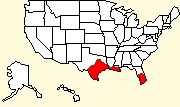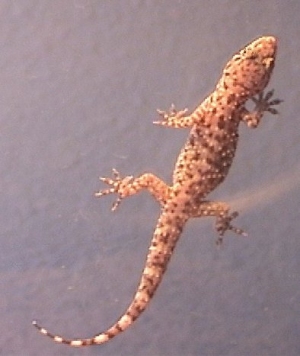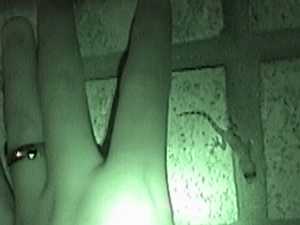|
Mediterranean Gecko
|
- Order: Squamata (scaled reptiles)
- Suborder: Lacertilia (=Sauria) (lizards)
- Family: Gekkonidae (geckos)
- Genus: Hemidactylus (house geckos)
|
| Also Known As: house
gecko, Turkish gecko |
Scientific Name: Hemidactylus
turcicus (Linnaeus, 1758) |
| Habitat: Shrubbery and
other arboreal-type locations, including around human habitation. |
Hemi="half," dactylus="finger,"
turcicus="of Turkey"
|
| Length: To about 6 inches
total. |
|
| Food: Insects. |

|
|
We have quite a few Mediterranean geckos living on
our house. Being nocturnal, the only time I see them during
the day is when I surprise one in the garage. These lizards
are fairly fragile and their tails readily detach (they grow back,
but don't look nearly as nice as the original). Geckos are
capable of vocalizing; at night you can sometimes hear the
"smacking" sound Mediterranean geckos make.
The individual pictured here is one of several I
captured and housed for a few weeks Spring 2002 while our house
was being repainted. |
 |
| Mediterranean geckos are not
native to Texas (or anywhere else in the United States).
They were introduced, most likely as stowaways on shipping
vessels. They can be found in many locations in America now,
and seem to favor buildings.
This is a picture of a baby gecko on my porch, taken with the
aid of my NightShot function on my video camera.
|
 |
|
|
|
|
|
|
|